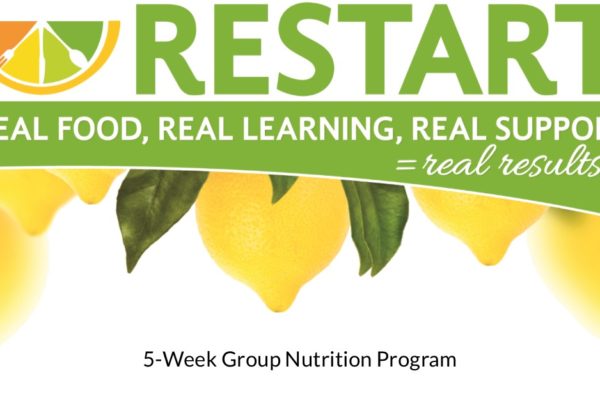 Even in a world where there are so many wonderful, fresh food choices sometimes we can get distracted by shiny cans and colorful packages, not to mention misleading claims of health. Notwithstanding the hype by manufacturers and marketers, there are certain foods that I never eat. Not that I have never eaten them, I was once fooled into compromising my health by the shiny cans and colorful packages, but after research and study, and a good dose of common sense, I realized that real foods, traditionally prepared, are better for me and my health than processed foods or food substitutes created in a laboratory.
Even in a world where there are so many wonderful, fresh food choices sometimes we can get distracted by shiny cans and colorful packages, not to mention misleading claims of health. Notwithstanding the hype by manufacturers and marketers, there are certain foods that I never eat. Not that I have never eaten them, I was once fooled into compromising my health by the shiny cans and colorful packages, but after research and study, and a good dose of common sense, I realized that real foods, traditionally prepared, are better for me and my health than processed foods or food substitutes created in a laboratory.
To learn more about real food and traditional food preparation. Check out my Sites of Interest page.
Now, for my list of 5 Things Never to Eat:
 1. Soy (or any of it’s derivatives like soy powder and tofu). 98% of the soy produced in the U.S. is genetically modified. Soy contains high levels of phytic acid which reduces the assimilation of calcium, magnesium, copper, iron, and zinc. Trypsin inhibitors in soy interfere with protein digestion and may cause pancreatic disorders. Soy contains excessive amounts of soy phytoestrogen which disrupt endocrine function and can cause infertility and breast cancer in women. Soy phytoestrogens are potent antithyroid agents that cause hypothyroidism and can cause thyroid cancer. Vitamin B12 in soy is not absorbed and actually increases the body’s requirement for B12. Soy foods increase the body’s requirement for vitamin D. Giving babies soy formula provides them with the estrogen equivalent of 5 birth control pills a day and has been linked to autoimmune thyroid disease. Soy foods contain high levels of aluminum which is toxic to the nervous system and the kidneys. Soy has never been eaten traditionally in the quantities that it is now. Traditionally, soy was fermented as in the case of tempeh, natto, and tamari. Fermentation neutralizes the enzyme inhibitors and phyto-nutrients.
1. Soy (or any of it’s derivatives like soy powder and tofu). 98% of the soy produced in the U.S. is genetically modified. Soy contains high levels of phytic acid which reduces the assimilation of calcium, magnesium, copper, iron, and zinc. Trypsin inhibitors in soy interfere with protein digestion and may cause pancreatic disorders. Soy contains excessive amounts of soy phytoestrogen which disrupt endocrine function and can cause infertility and breast cancer in women. Soy phytoestrogens are potent antithyroid agents that cause hypothyroidism and can cause thyroid cancer. Vitamin B12 in soy is not absorbed and actually increases the body’s requirement for B12. Soy foods increase the body’s requirement for vitamin D. Giving babies soy formula provides them with the estrogen equivalent of 5 birth control pills a day and has been linked to autoimmune thyroid disease. Soy foods contain high levels of aluminum which is toxic to the nervous system and the kidneys. Soy has never been eaten traditionally in the quantities that it is now. Traditionally, soy was fermented as in the case of tempeh, natto, and tamari. Fermentation neutralizes the enzyme inhibitors and phyto-nutrients.
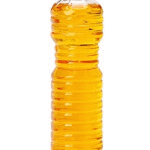 2. All hydrogenated and partially hydrogenated oils, and industrially processed liquid oils such as soy, corn, safflower, cottonseed, and canola. These fats can cause cancer, heart disease, immune system dysfunction, sterility, learning disabilities, growth problems, liver damage, wrinkles and premature aging, damage to reproductive organs, damage to the lungs, depression, and osteoporosis. Vegetable oil refineries look like chemical refineries or a place in which petroleum is processed. Every step of modern processing damages fragile polyunsaturated oils. They are deodorized and steam cleaned to hide the smell of rancidity, but modern vegetable oils are full of rancid free radicals.
2. All hydrogenated and partially hydrogenated oils, and industrially processed liquid oils such as soy, corn, safflower, cottonseed, and canola. These fats can cause cancer, heart disease, immune system dysfunction, sterility, learning disabilities, growth problems, liver damage, wrinkles and premature aging, damage to reproductive organs, damage to the lungs, depression, and osteoporosis. Vegetable oil refineries look like chemical refineries or a place in which petroleum is processed. Every step of modern processing damages fragile polyunsaturated oils. They are deodorized and steam cleaned to hide the smell of rancidity, but modern vegetable oils are full of rancid free radicals.
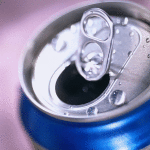 3. Soda Pop. Sugar and acid in soda pop easily dissolves tooth enamel. Most soda pop contains high fructose corn syrup, a sweetener that’s been associated with an increased risk of metabolic syndrome, a condition associated with an elevated risk of both diabetes and heart disease. Soda pop cans are coated with a resin that contains BPA that wreaks havoc on the endocrine system, potentially causing premature puberty and reproductive abnormalities. Soda pop contains phosphoric acid and high phosphate consumption has been associated with bone breakdown and an increased risk of osteoporosis. When phosphorus is excreted in the urine, it takes calcium with it depriving the bones and the rest of the body of this important mineral. Soda pop drinkers have an 80% increased risk of developing Type 2 diabetes. Researchers calculate that for each can of soda consumed, the risk of obesity increases 1.6 times. Sodium benzoate is used as a preservative in soda pop which reduces the availability of potassium and causes reactions such as rash, asthma, and eczema. Colas contain high levels of phosphoric acid which can cause kidney stones and other renal problems. 20 minutes after drinking a soda pop, your blood sugar spikes, causing an insulin burst. Your liver responds to this by turning any sugar into fat. 40 minutes later, caffeine absorption is complete. Your pupils dilate, your blood pressure rises; as a response, your liver dumps more sugar into your bloodstream. The adenosine receptors in your brain are now blocked preventing drowsiness. 45 minutes later, your body ups your dopamine production, stimulating the pleasure centers of your brain. This is physically the same way heroin works, by the way.
3. Soda Pop. Sugar and acid in soda pop easily dissolves tooth enamel. Most soda pop contains high fructose corn syrup, a sweetener that’s been associated with an increased risk of metabolic syndrome, a condition associated with an elevated risk of both diabetes and heart disease. Soda pop cans are coated with a resin that contains BPA that wreaks havoc on the endocrine system, potentially causing premature puberty and reproductive abnormalities. Soda pop contains phosphoric acid and high phosphate consumption has been associated with bone breakdown and an increased risk of osteoporosis. When phosphorus is excreted in the urine, it takes calcium with it depriving the bones and the rest of the body of this important mineral. Soda pop drinkers have an 80% increased risk of developing Type 2 diabetes. Researchers calculate that for each can of soda consumed, the risk of obesity increases 1.6 times. Sodium benzoate is used as a preservative in soda pop which reduces the availability of potassium and causes reactions such as rash, asthma, and eczema. Colas contain high levels of phosphoric acid which can cause kidney stones and other renal problems. 20 minutes after drinking a soda pop, your blood sugar spikes, causing an insulin burst. Your liver responds to this by turning any sugar into fat. 40 minutes later, caffeine absorption is complete. Your pupils dilate, your blood pressure rises; as a response, your liver dumps more sugar into your bloodstream. The adenosine receptors in your brain are now blocked preventing drowsiness. 45 minutes later, your body ups your dopamine production, stimulating the pleasure centers of your brain. This is physically the same way heroin works, by the way.
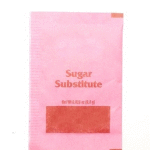 4. Artificial Sweeteners such as aspartame. Aspartame can cause brain tumors, contains methyl or wood alcohol which can affect fetal brain development, causes headaches, memory loss, slurred speech, vision problems, blocks the production of serotonin – which is linked to depression and which controls food cravings. Aspartame disrupts brain chemistry, and is a poison which is often misdiagnosed as rheumatoid arthritis, fibromyalgia, or chronic fatigue.
4. Artificial Sweeteners such as aspartame. Aspartame can cause brain tumors, contains methyl or wood alcohol which can affect fetal brain development, causes headaches, memory loss, slurred speech, vision problems, blocks the production of serotonin – which is linked to depression and which controls food cravings. Aspartame disrupts brain chemistry, and is a poison which is often misdiagnosed as rheumatoid arthritis, fibromyalgia, or chronic fatigue.
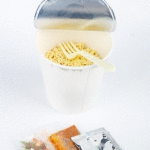 5. MSG, or hydrolyzed protein, which is the same thing as MSG. MSG is toxic to the nervous system, causing a wide range of symptoms, from seizures to headaches to dangerously low blood pressure. MSG is in many, many processed foods, usually not labeled. Anything containing the label “flavorings,” “natural flavorings,” or “spices” is likely to contain MSG. The FDA allows food companies to use flavoring mixes containing up to 49% MSG without labeling the MSG! MSG is an excitotoxin which means it overexcites your cells to the point of death, causing brain damage to varying degrees and potentially triggering or worsening learning disabilities, Alzheimer’s disease, Parkinson’s disease, and Lou Gehrig’s disease. Adverse effects linked to regular consumption of MSG include obesity, eye damage, headaches, fatigue and disorientation, depression, numbness, burning sensation, tingling, facial pressure or tightness, chest pain or difficulty breathing, nausea, or rapid heartbeat.
5. MSG, or hydrolyzed protein, which is the same thing as MSG. MSG is toxic to the nervous system, causing a wide range of symptoms, from seizures to headaches to dangerously low blood pressure. MSG is in many, many processed foods, usually not labeled. Anything containing the label “flavorings,” “natural flavorings,” or “spices” is likely to contain MSG. The FDA allows food companies to use flavoring mixes containing up to 49% MSG without labeling the MSG! MSG is an excitotoxin which means it overexcites your cells to the point of death, causing brain damage to varying degrees and potentially triggering or worsening learning disabilities, Alzheimer’s disease, Parkinson’s disease, and Lou Gehrig’s disease. Adverse effects linked to regular consumption of MSG include obesity, eye damage, headaches, fatigue and disorientation, depression, numbness, burning sensation, tingling, facial pressure or tightness, chest pain or difficulty breathing, nausea, or rapid heartbeat.
Sources:
Weston A Price Foundation
Nourishing Our Children
AssociatedContent.com
Waterforlifeusa.com
Ionizers.org
NYTimes.com
Helium.com
AAFA.org
KidneyFund.org
NOF.org
Chetday.com
AmericanHeart.org
Nutrition.Suite101.com
CDC.gov
Pinchney – The Cholesterol Controversy



